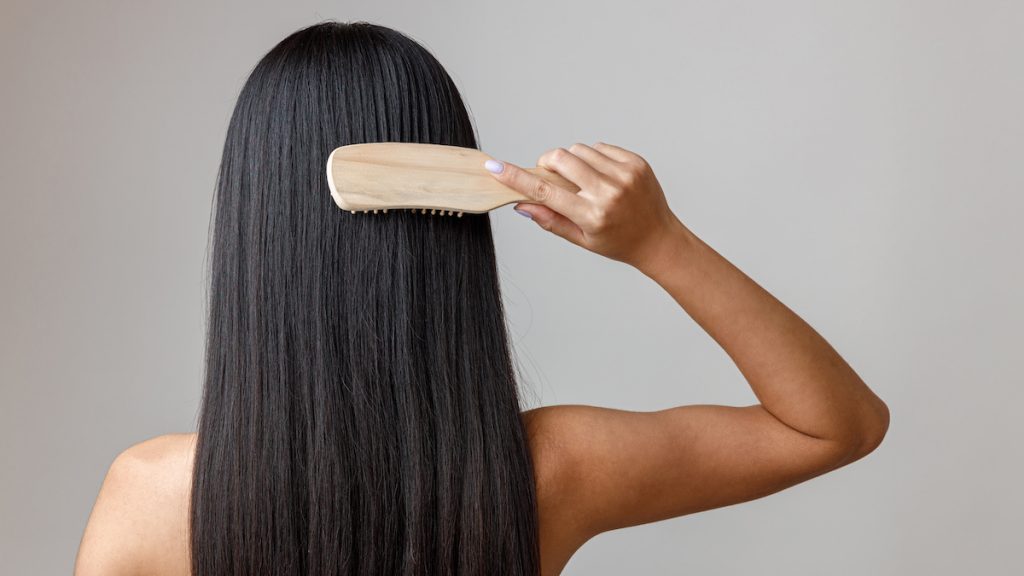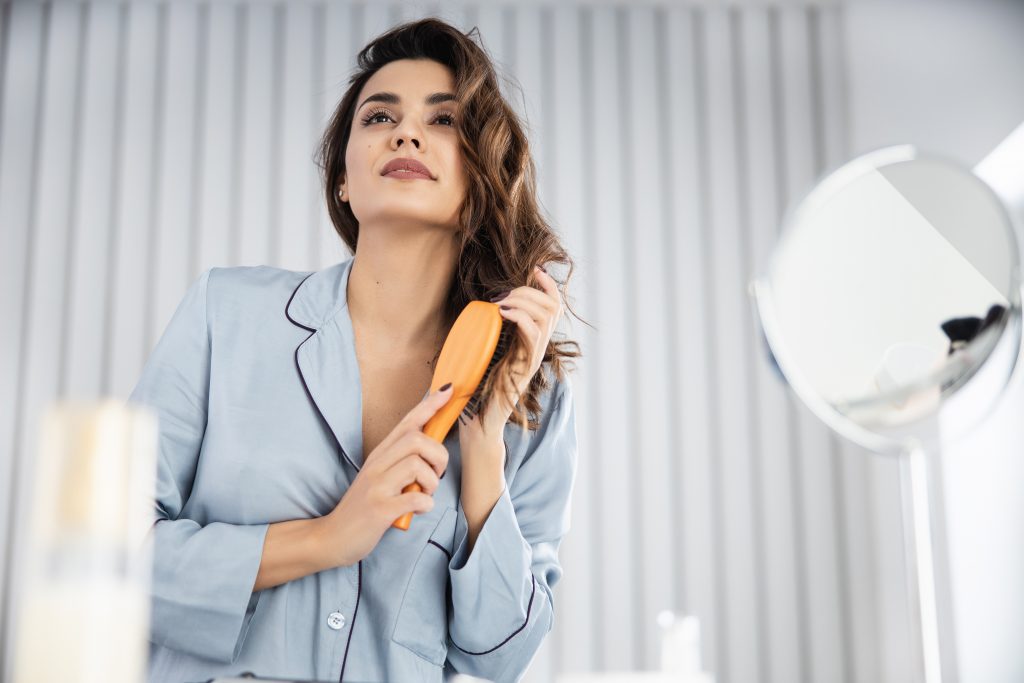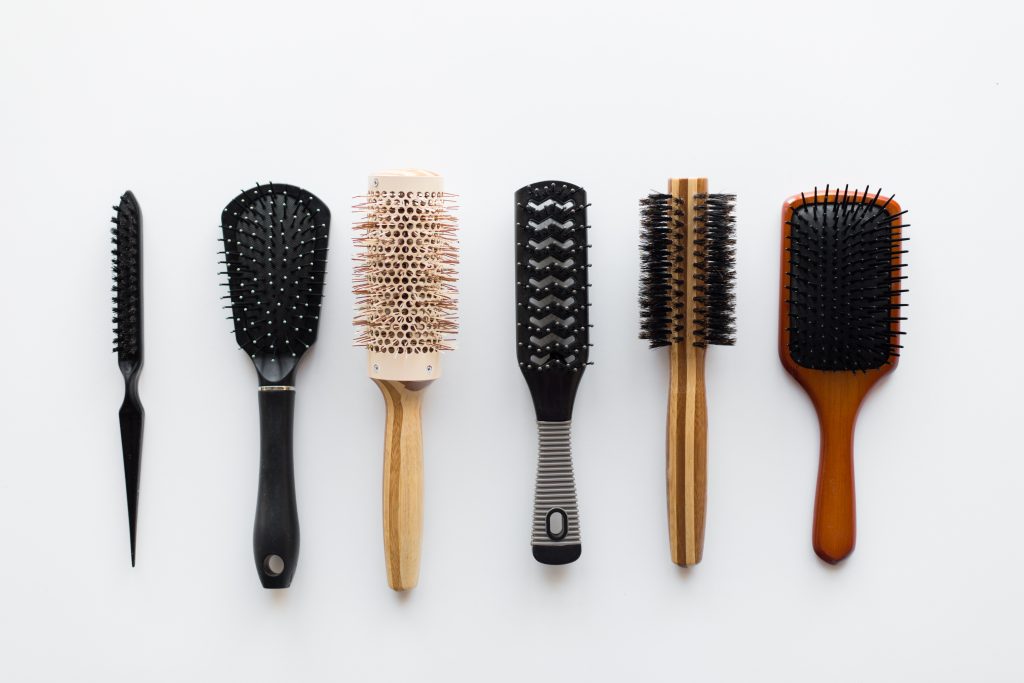Just as you wouldn’t use a grimy dishcloth to wipe your countertops, you don’t want to use a dirty hair brush to style your hair. Oil, flakes and product buildup transfer to bristles during use. As gross as it sounds, it’s true. If you don’t already have a regular hair brush cleaning routine, it’s time to start one. Here’s why.
If your hair brush looks dusty, that’s actually a combination of hair, dead skin cells, lint, scalp oil and product residue. Double ick: bacteria and fungus can grow on the material inside the brush. So cleaning is a must.

Cleaning frequency
When it comes to hair brushes, there are numerous varieties to choose from. From soft brushes, to flat brushes, round ones, volumizing ones, curl enhancing ones, and detangling types, they all share a common goal: to make your hair look better.
Even the best hair brushes need to be cleaned consistently. In fact, all of our beauty tools need regular cleaning, just like our makeup brushes. If you have long hair or style it frequently using several hair products, experts recommend removing the hair buildup regularly and cleaning roughly every two weeks. Otherwise, once a month is fine.
How to clean a plastic, metal or ceramic hair brush
The cleaning process is fairly straightforward for plastic, metal or ceramic brushes. Stary by removing any hair stuck in the bristles by using a comb. For extra tangled brush heads, you might need to break out the scissors. Next, swirl the hairbrush around in warm water with a teaspoon of gentle shampoo. If the handle is wooden, use a shallow dish or cup that will keep the handle dry. Give the handle a wipe with a damp washcloth to remove any product residue.
Scrub the brush head with your fingers or an old toothbrush to remove any caked-on grime. If you need added cleaning power, add a dash of baking soda, which will act as a gentle abrasive. For narrow areas, try using a cotton swab. Rinse the head with fresh water and set it down to airdry the bristles face down.

How to clean a brush with natural bristles
For brushes made with natural materials like wood or boar bristles, the process is slightly different. You should still remove all the hair from the head and swish it around in warm water with a dash of mild shampoo, but you don’t want to let the brush soak because it will degrade the wood.
Rather, give it a quick dip in the water and use a toothbrush to scrub the head. Then rinse with fresh water and let it dry face down.

Finding the best hair brush
While consistent cleaning is a must for keeping your hair tool in tip-top shape, you might go to clean it and realize the brush has run its course. If it’s time for a new one, or you’d like to experiment with a different type of brush — metal, ceramic, plastic or boar bristles — check out our selection of the best hair brushes that have been vetted by a team of experts.
Finding the best hair brush for your hair type can have a significant impact on your daily routine and make styling easier and more satisfying.
This story originally appeared on Don't Waste Your Money. Checkout Don't Waste Your Money for product reviews and other great ideas to save and make money.


